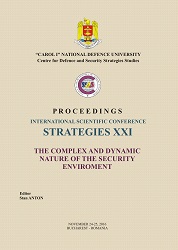
We kindly inform you that, as long as the subject affiliation of our 300.000+ articles is in progress, you might get unsufficient or no results on your third level or second level search. In this case, please broaden your search criteria.

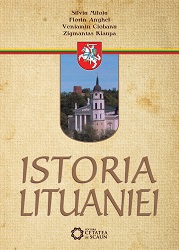
This book is the result of fruitful cooperation between Romanian and Lithuanian historians belonging to four university centers. It approaches from a variety of angles the history of Lithuania from the first settlement of the Baltic tribes on the eastern shores of the Baltic Sea to present. The first chapter deals with the earliest history of Lithuania, its highlights being on the formation of the Grand Duchy of Lithuania, the political, economic, cultural and social history of Lithuania under the Gedimid dynasty and the Christianization of Lithuanians, the last pagans of Europe, in 1387. The second chapter brings to the readers’ attention the personal union between Lithuania and Poland set up when the grand dukes of the former occupied also the throne of Poland. It emphasizes the role of Jogaila and Vytautas as the main characters of the story, but the aim is a larger one: it discusses the economic, social, political and foreign policy of the Grand Duchy of Lithuania up to the middle of 16th century. The Union of Lublin and its consequences to Lithuania are dealt with in the third chapter which also points out to the vices inscribed in the political system of the Polish-Lithuanian Commonwealth leading to the three divisions of Poland taking place at the end of the 18th century. The Lithuanians largely fell under Russian domination and shared in the fate of the Poles alongside which they struggled to re-establish the Union of Lublin. The aim of separating from the Russian domination was unsuccessful until the end of the First World War. The forth chapter presents the history of Lithuanians under Russian rule and explains the reasons for which the Russians decided to close down in 1832 the University of Vilnius and ban the Lithuanians the use of Latin alphabet between 1864 and 1904. The fifth chapter approaches the achievement of independence by Lithuania and the main lines of the political, social, economical and cultural interwar developments. The book highlights the consequences of the land reform, explains the failure of the democratic system, assesses the Lithuanian foreign policy especially with regard to Poland, Russia and Germany and explains the circumstances of Lithuania’s annexation by the Soviet Union. The implications of Soviet and German occupation regimes (1940-1990) were deep both on the majority and minority inhabitants of the country. The main developments in this respect are analyzed in the sixth and seventh chapters. They describe the implementation of the Soviet system in Lithuania in 1940-1941 and 1944-1990, the deportation of waves of tens of thousands of people to Soviet Union during Stalinism, the massacre of Jewish minority of Lithuania under German rule, the social, economic, cultural developments under Soviet domination, the birth of the dissident movement etc. and place emphasis on the Lithuanian devolution from the Soviet empire. The last chapter approaches the history of the second Lithuanian republic, its internal and external politics and highlights the integration within the EU and the NATO.
More...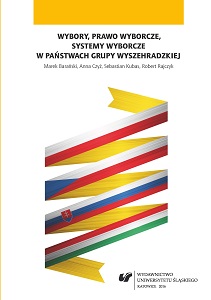
"We propose to the reader taking interest in the Visegrad Group countries the work dealing with elections and electoral systems in the political system of the Czech Republic, Poland, Slovakia and Hungary. This consecutive monograph devoted to the phenomenon of elections, electoral law and electoral systems is aimed at the reconstruction of national models of electoral law and electoral systems that have been shaped within a quarter of a century. "(Excerpt from the introduction)
More...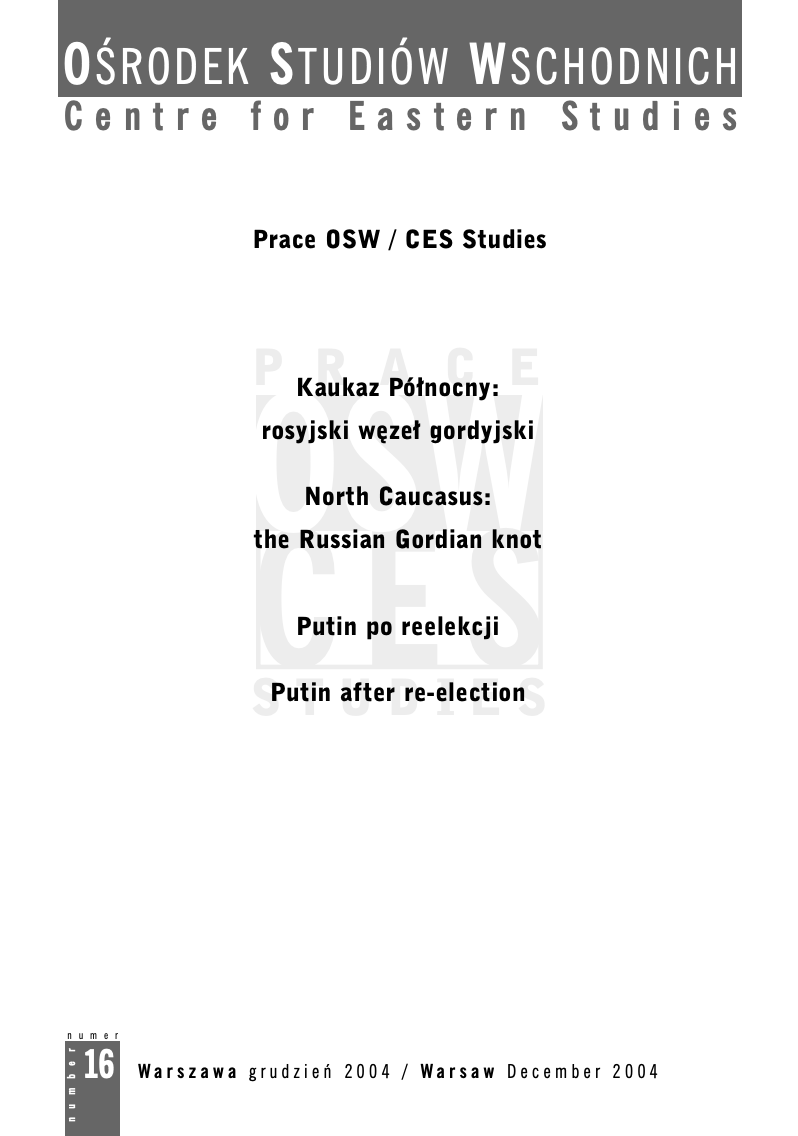
1. Vladimir Putin's first term as President was a period of submitting political, regional and economic lobbies to the Kremlin. The actions Putin has taken since being re-elected are aimed at consolidating the Kremlin's control over the political, economic and social spheres. Further liquidation of political and informational pluralism, an increase of the ruling group's control over state and private property, and an intensification of state propaganda aimed at generating social support for the Kremlin's initiatives have all proceeded apace. These processes reinforce authoritarian tendencies and strengthen the emerging monocentric political system, with the President's strong domination over political, economic and social life. // 2. Since Putin's re-election no return to wide-ranging economic reforms can be observed; previously, the reformist impetus of the President's team had been checked halfway though his first term of office, with a view to the approaching parliamentary and presidential elections). Thus, the concentration of power in the President's hands (which had been repeatedly named as a sine qua non for the implementation of unpopular reforms) has not brought about any continuation of economic reforms. The authorities have limited themselves to selected actions in the social sphere and have made no attempts to reform the area of the natural resource monopolies. Nor have they guaranteed to put into practice the pro-market acts which had been passed during Putin's first term of office. Instead, one may observe the consumption of the fruits of the boom in the raw material markets, and the demonstration of Russia's remarkable economic indicators (which in fact mostly derive from high oil prices). Meanwhile, unfavourable conditions for long-term economic development in Russia are growing: the archaic structure of the economy is being strengthened (the overwhelming dominance of big businesses over small- and medium-sized enterprises in GDP production); the raw-material profile of the Russian economy is being reinforced (at the cost of services and technologies), the Kremlin's political control and "manual steering" of the economy is growing, and corruption (the which is a serious problem for the effective functioning of the Russian economy) has not been reduced. // 3. The elections and the beginning of Vladimir Putin's second term of office were a period which saw an increase in the Kremlin's control over both state and private property. This was done by strengthening the position of big state companies (especially in the raw materials sector), by increasing the amount of state regulation over the strategic sectors of the economy, and by tightening control of private companies. At the same time, the right to private property is being violated by the ruling elite. Under the pretext of collecting delinquent tax demands, the authorities are attempting to take over the assets of Russia's biggest private company, the oil concern Yukos. Such actions have already lead to an increased flight of capital from Russia, and to a general deterioration of the country's image as a stable, predictable economic partner which encourages foreign investments. // 4. In the last few months Russian political life has witnessed a visible intensification of Kremlin propaganda, based on the ideology of security. The authorities are trying to create an image of Russia as a country besieged by the hostile outside world (especially the West), and undermined from within by a democratic "fifth column". The Russian authorities, using the media, are requiring a unification of forces in the battle against terrorism. In practice, this means a strengthening of the President's powers at the cost of other centres of public life, as well as an intensification of xenophobia and distrust towards all forms of dissidence and dissent. Moreover, the Kremlin is trying to involve the Russian Orthodox Church in the struggle for people's minds. The authorities have appealed to Orthodox hierarchs for "active participation in fighting terrorism by boosting society's morale". // 5. Since the very beginning of Vladimir Putin's rule, we have witnessed a visible expansion in the appointment of security service representatives (the so-called "chekists"), as well as their increasing influence on politics, the economy and social issues. This tendency has been maintained since Putin's re-election. At the moment, the "chekists" have influence not only on state government issues, but also have increasing access to financial resources. At the present stage of Putin's rule, a wider process can be noted of appointing Putin's close colleagues from the security services to key posts in state-controlled companies. Also, the "chekists" activity keeps growing in the sphere of ideology.
More...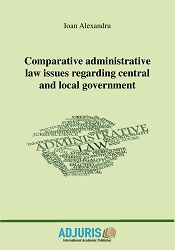
The purpose of this book is to study comparative administrative law in the main EU states and the United States of America and Canada and then to provide proposals for the modernization of Romanian public administration in order to increase administrative convergence and to better meet the needs of citizens. In this book, the author aims to realize a dynamic approach by looking at the contemporary challenges and perspectives of the future of the contemporary administrations and on the other hand the modifications to be made at the level of the Romanian administrative law to increase the degree of convergence. The basic institutional values at European and global level (functionality, transparency, predictability, accountability, adaptability, efficiency, subsidiarity) must also be implemented within the Romanian public administration at all levels and must be protected by the public authorities empowered by the legislation in force to monitor and control this process of adaptation to the requirements of the European Administrative Space and Global Administrative Law. The book „Comparative administrative law issues regarding central and local government” is a very useful material for students, master students, doctoral students, teachers, researchers and practitioners in the legal and administrative sciences (advocates, solicitors, notaries, referees, judges, civil servants, officials etc.) and generally for all those interested in the administrative phenomenon.
More...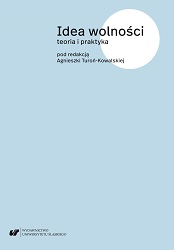
Socjalizm jako rodzaj filozofii moralnej zaszczepił w ludziach świata środkowej i wschodniej kultury europejskiej ideę braterstwa ludzkiego. Kapitalizm zakłada przede wszystkim samodzielność i realizację indywidualnego interesu. Obywatele krajów postkomunistycznych z jednej strony pragną realizacji demokratycznego modelu państwa, z drugiej strony nie potrafią zrezygnować z idei braterstwa, z idei sprawiedliwości społecznej, z instytucjonalnych form socjalizmu, który w swoich zamierzeniach miał być realizacją tych idei. Kłopotem zatem staje się fundamentalna idea państwa demokratycznego – wolność. W imię „wolności” obywatele świata jałtańskiego dokonywali czynów heroicznych, aby przezwyciężyć komunizm i przynależeć do świata cywilizacji zachodniej. Świata, w którym realizuje się przede wszystkim zasada liberalizmu o posiadaniu wolności, więcej, o obowiązku gwarancji owej wolności. Ojcowie liberalizmu zakładali, że istota ludzka jest wolna na mocy natury samego człowieczeństwa, że z przyrodzenia cieszy się wolnością niezbywalną. Wolność w tym sensie jest zdolnością wyboru, który nie jest wymuszany przez jakiekolwiek siły, przez jakąkolwiek formę zewnętrzną. Nic nie dzieje się poza świadomością człowieka. Można mówić zatem o wolności w sensie wolności negatywnej. Ten rodzaj wolności stoi w opozycji do wolności pozytywnej. Jeśli chcielibyśmy przełożyć problem relacji pomiędzy wolnością negatywną a wolnością, to możemy mówić o dwóch potrzebach obywateli: ochronie przed ingerencją i przymusem zewnętrznym oraz gwarancji odpowiednich środków do samorealizacji. Pierwszy rodzaj wolności I. Berlin wiąże z ideą wolności dla samej wolności, drugi rodzaj z możliwością ograniczenia jednostki, aby zagwarantować jej realizację własnego „ja” i związanych z tym celów. Problem wolności zatem przekłada się również na potrzeby zwykłego obywatela w cywilizacji europejskiej, zarówno zachodniej, jak i wschodniej. W tej ostatniej jednak, w związku z historią można uwidocznić problem pomiędzy chęcią posiadania wolności negatywnej, a nostalgią lub bardziej próbą urzeczywistnienia również wolności pozytywnej. Niesie to za sobą wiele problemów badawczych, które można odnieść w szczególności do państw, których historia sprawiła, że możemy zastanawiać się nad relacją wolności negatywnej i pozytywnej w praktycznym, nie tylko teoretycznym, jej pojmowaniu przez obywateli. W zakresie badania nad ideą wolności stanowi to ważny problem. Monografia naukowa będzie starała się ukazać relację wolności negatywnej i pozytywnej w kontekście zmian, jakie miały miejsce w kulturze europejskiej i poza nią zarówno w kontekście teoretycznym, jak i praktycznym dawniej i dziś.
More...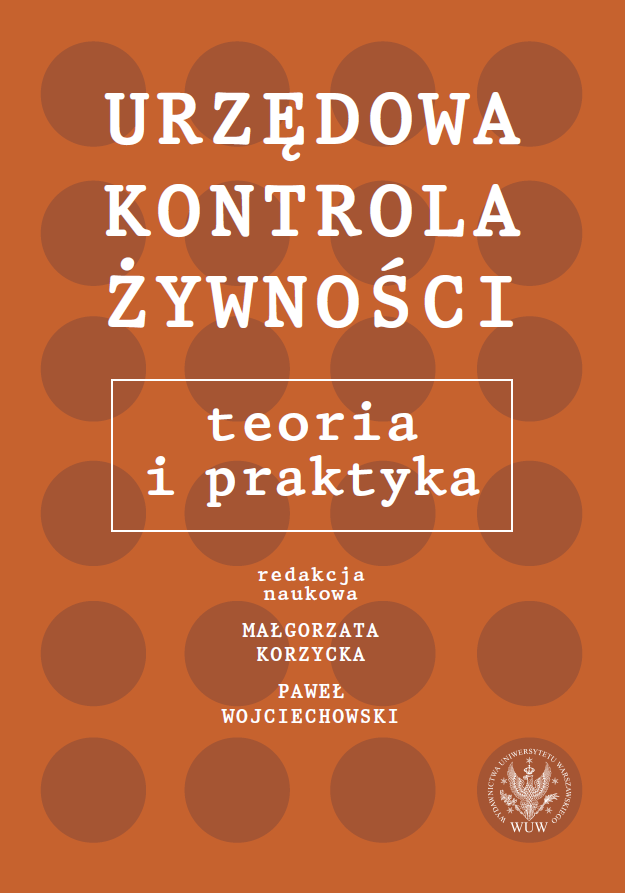
A collection of articles devoted to the analysis of present solutions and proposed future models of the functioning of official food control in Poland in the context of administrative, financial, agricultural, and food laws. The authors discuss the following issues: the system of official food control in light of European Union legal requirements, supervising food safety and the mutual relations between different inspection authorities responsible for this supervision in Poland, public management in the area of official food control.
More...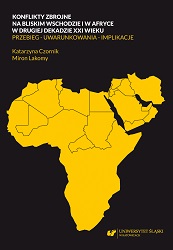
There currently exists a burning necessity for undertaking an academic analysis of the nature of the armed conflicts which occurred in the second decade of the 21 century in the Middle East and Africa. With an increasing frequency they exert a significant influence on the security of the nations of NATO and the European Union, a clear sign of this being the immigration crisis of 2015 and the dramatic increase in the number of terrorist attacks in Europe in the recent years. The problem grows more serious as the world and local public opinion perceive the above symptoms in a very simplified manner, saturated with stereotypes or distortions, frequently thoughtlessly proliferated by the mass media. The main research purpose of the monograph is to present the course, the basic conditions and the most important implications of the selected armed conflict in the area of the Middle East and Africa in the second decade of the 21st century. Altogether six armed conflicts have been selected for the analysis: in Syria, Libya, Mali, the Central African Republic, the war with the so-called Islamic State of Iraq and Syria and the Israel-Palestine conflict. Among the specific aims of the presented monograph the following should be enumerated: the discussion of the course of all of the selected armed conflicts in Africa and the Middle East, the verification of the stereotypes and distortions which have grown around these conflicts, the characteristic of the most important internal and external factors which have influenced the eruption and the course of the selected armed conflicts, the distinguishing, as far as it is possible, of the common features of the military conflicts in Africa and the Middle East in the second decade of the 21st century and the indication of the most important implications of the armed conflicts for the security of the discussed countries, as well as international security.
More...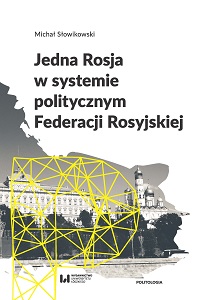
The starting point in this discussion on the place and role of United Russia in the political system of the Russian Federation in the years 2001–2016 is the premise that it is a specific party type within the family of authoritarian parties. Its basic characteristics are direct ties with the ruling faction – the real decision-making centre within a particular political system – and a stabilizing influence over an authoritarian regime. This type of authoritarian parties is internally heterogeneous because parties differ in their actual contribution to the stabilization of an authoritarian system and in the degree of their internal and external institutonalisation, mainly with respect to decision-making autonomy and systemic structure. Consequently, two party types can be distinguished: the dominant type and the ruling type. United Russia has not acquired any typical features of a perfect dominant party in the 15 years of its existence. It has definitively come closer in that period to an ideal type of a ruling party, even though it differed from the ruling parties of the Russian political system in the 1990s. Considering the degree of its institutonalisation and the range of its actual powers, it can be argued that United Russia should be best described as a dominant ruling party.
More...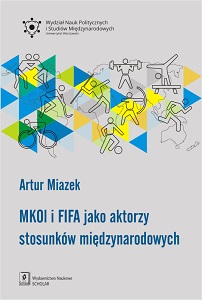
W prezentowanej książce dokonano analizy roli organizacji sportowych we współczesnych stosunkach międzynarodowych, biorąc pod uwagę przede wszystkim MKOl i FIFA. Te dwie obecnie najważniejsze sportowe organizacje są autonomiczne i funkcjonują jako pełnoprawni aktorzy polityki światowej. Autor ukazuje m.in.: jak przebiegał proces tworzenia ich potęgi, na czym polega ich autonomia, w jaki sposób kształtują swoje relacje z państwami i innymi podmiotami stosunków międzynarodowych, a także jaką funkcję pełnią w dyplomacji sportowej. Artur Miazek – doktorant na Wydziale Nauk Politycznych i Studiów Międzynarodowych Uniwersytetu Warszawskiego w zakresie nauk o polityce, absolwent prawa na Wydziale Prawa i Administracji Uniwersytetu Warszawskiego oraz stosunków międzynarodowych w Instytucie Stosunków Międzynarodowych Uniwersytetu Warszawskiego. Do jego głównych zainteresowań badawczych należą powiązania sportu i polityki, prawo sportowe, integracja europejska oraz bezpieczeństwo międzynarodowe.
More...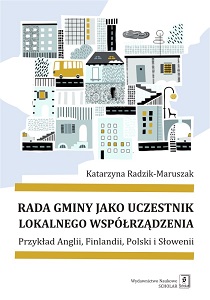
Książka przedstawia sposób funkcjonowania rad gminnych w Anglii, Finlandii, Polsce i Słowenii. Pokazuje wpływ governance na relacje rad (i radnych) z organami wykonawczymi, gminną administracją oraz obywatelami, jak również transformujące się role gminnych organów przedstawicielskich. Podstawę monografii stanowią badania empiryczne – blisko osiemdziesiąt wywiadów pogłębionych – przeprowadzonych przez autorkę z radnymi i ekspertami w każdym z tych państw. Wyniki badań wskazują, że choć organizacja rad jest we wszystkich samorządach zbliżona, lokalni przedstawiciele odmiennie postrzegają zarówno role rad gminnych we współrządzeniu, jak i zachodzące w ich otoczeniu zmiany.Z wielkim zainteresowaniem i satysfakcją zapoznałam się z pracą dr Katarzyny Radzik-Maruszak dotyczącą rad gminnych jako aktorów w lokalnym współrządzeniu. Bez wątpienia autorka poruszyła aktualne i ważne zagadnienie badawcze. (…). Podjęcie badań empirycznych w państwach należących do odmiennych tradycji administracyjnych, o rozmaitej kulturze prawnej, administracyjnej i politycznej, było poważnym wyzwaniem, z którym – o czym jestem głęboko przekonana – Autorka sobie poradziła.z recenzji prof. dr hab. Agnieszki PawłowskiejKatarzyna Radzik-Maruszak – ukończyła nauki polityczne oraz prawo, adiunkt w Zakładzie Samorządów i Polityki Lokalnej, Wydziału Politologii Uniwersytetu Marii Curie-Skłodowskiej w Lublinie. Kierownik i wykonawca w projektach finansowanych przez Ministerstwo Nauki i Szkolnictwa Wyższego oraz Narodowe Centrum Nauki. Wykładowca w Tampere University (Finlandia), Charles University in Prague (Republika Czeska), Technical University of Košice (Słowacja) oraz Faculty of Organisation Studies, Novo Mesto (Słowenia) i School of Advanced Social Studies, Nova Gorica (Słowenia). Autorka kilkudziesięciu publikacji z zakresu samorządu terytorialnego i governance. Jej zainteresowania badawcze obejmują lokalne współrządzenie w ujęciu porównawczym, zagadnienia reprezentacji politycznej oraz partycypacji na poziomie lokalnym.
More...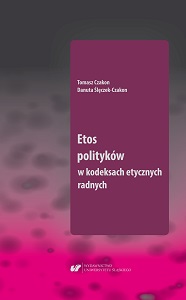
Politics and politicians are harshly evaluated. One of the politicians᾽ answers to the accusations and social expectations of following the most important moral principles is adopting ethical codes, in which they declare their good intentions, specify the standards of conduct and commit themselves to comply with them. Ethical codes are adopted by politicians in many countries. The situation is similar in Poland, where parliamentarians, as well councillors of many different local government units have their own codes. The authors᾽ subject of interest are ethical codes of councillors. This is because there are a lot of them and thanks to that it allows the authors to assess the dominant ethos among politicians. That notion is defined as the set of values and norms considered to be binding in politics. The authors assume that there are many similarities between councillors (of various levels of government) and members of parliament (councillors become parliamentarians, parliamentarians become councillors, both councillors and parliamentarians are members of the same political parties or local political organizations), thus by analysing the ethical codes of councillors, the ethos of politicians can be reconstructed.The authors analysed 58 codes from various local government levels from all over Poland (different regions of country). The analysis of the content of the codes was based on the assumption that the ethos of politicians create not only the virtues of politicians, but also the nature of the institutions in which they act, relations with the environment and — especially — with voters. This was also the basis for establishing research questions and hypotheses: some of them concern the formal side of the codes (do they meet the requirements of constructing codes?), however, the majority refers to the declared values and principles that make up the ethos of councillor‑politicians. One of the hypotheses assumed that in the codes of ethics for councillors, who are operating in a democratic state, a politician‑democrat ethos should be revealed. Analysis of the content of codes of ethics for councillors led to the conclusion that the democratic ethos is poorly outlined in them, whereas corruption prevention and autocratic attitude prevail. Democratic values are present only in 1/3 of the analysed codes. The ethos of politicians, implicit in the ethical codes, is a chaotic and inconsistent collection of various values, principles and attitudes.
More...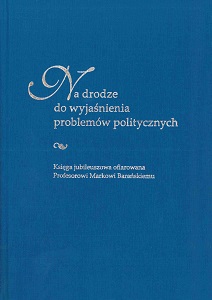
This publication contains articles which undertake the analysis of problems within the research realm of political science. Among the notions discussed by the authors are those from the field of political theory, social and political thought, political systems, internations relations, local and regional politics, social policies, social and political communication, and historical questions. The book is addressed to persons willing to acquire in depth the knowledge pertaining to various aspects of public life analysis from the vantage point of political sciences.
More...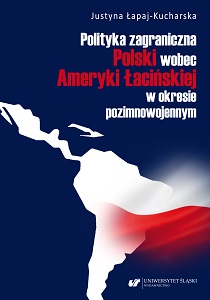
The work is a compendium of information and a study of Polish-Latin American relations, with particular emphasis on the implications of Poland’s accession to the structures of the European Union in the context of the country’s policy towards Latin America. The monograph is the first in the literature on the subject in which the title issue has been presented within the framework of the entire post-cold war period, i.e. 1989/1990–2016, and in a comprehensive way, on the political, economic, scientific and cultural levels.The author has focused on the analysis of bilateral relations with Brazil, Argentina, Chile, Mexico, Colombia and Venezuela. The determinant of such a choice was the desire to discuss Poland’s relations with its main Latin American partners. In accordance with the government document Strategia RP w odniesieniu do pozaeuropejskich krajów rozwijających się [Strategy of the Republic of Poland with regard to non-European developing countries] of 2004, Brazil, Argentina, Chile and Mexico were included among the priority partners, while Colombia and Venezuela were defined as important. These are the Latin American countries with which Poland conducts political dialogue both bilaterally and multilaterally (within the EU or the Pacific Alliance, which includes three of the countries listed in the Strategy – Mexico, Chile and Colombia), and Brazil, Argentina, Mexico and Chile account for the largest percentage of Poland’s trade with the region (about 75%). As far as the historical experience of mutual contacts is concerned, it should be noted that these countries, especially Brazil and Argentina, were the main directions of emigration from Poland to Latin America. The work also mentions Poland’s relations with other countries of the region, such as Cuba, Peru, Panama and Ecuador.The study is devoted to the post-war period, but it takes into account the context of Poland’s earlier policy towards Latin America, divided into the most characteristic stages, corresponding to continuity and change in the bilateral relations. It discusses Poland’s contacts with the countries of this region in the 17th and 18th centuries, as well as in the 19th century, when there was an increased emigration of Poles, especially to Brazil (the so-called Brazilian fever) and Argentina.The title issue has been presented in the bilateral and multilateral dimension, taking into account the formal and legal basis and the results of meetings at the highest and lowest levels. Factors hindering and facilitating relations between Poland and Latin American countries and the position of these countries in the foreign policy of Poland have been identified. Determinants and tendencies in Polish policy towards the Latin American region, its manifestations, as well as dilemmas and challenges that appeared in the 21st century have been presented. Moreover, arguments for intensification of mutual relations in bilateral and multilateral forums and potential areas of cooperation in the field of political, economic, scientific and cultural relations have been indicated.
More...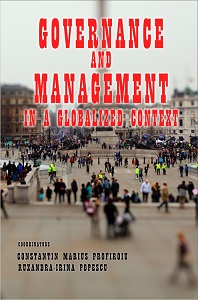

Contemporary organizations belonging to the public sector operate in a very dynamic and changing environment while achieving the goals for which they were established. Due to the emergence of new challenges and the resulting opportunities and threats, the way in which public services are organized and delivered is also changing.The subject of considerations in the publication is the issue of self-management in the organizational structures of public institutions and the use of alternative forms of providing public services, with particular emphasis on those that involve citizens themselves in the same processes. Its purpose is, first of all, to systematize knowledge in these two areas, define the basic concepts and processes related to them, and to classify the described solutions.The logic of the analyzes carried out in the publication is evolutionary, indicating, in chronological terms, gradual changes taking place within the framework of individual concepts of managing public organizations and ensuring access to public services. This approach allows to highlight the emerging advantages and benefits of innovative management practices in public institutions and modern, inclusive forms of public service provision. In practice, the processes of self-organization in team management and self-experience in public services can significantly affect the resilience of local communities and the sustainable nature of their development processes.The publication is addressed to a wide audience. First, to the community of practitioners from the public sector (representatives of government and public administration employees). Secondly, future practitioners - students of selected faculties of universities. Third, residents as prosumers of public services.
More...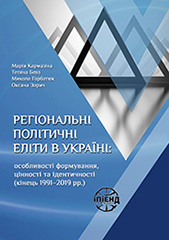
The study analyzes the mechanisms of recreation of the regional elite in Ukraine in the period from late 1991 to 2019. Against the background of the analysis of all-Ukrainian processes of formation and development of the elite, the formation of regional elites Vinnytsia, Poltava, Sumy are studied. Particular attention is paid to the formation and transformation of elite identities and their political values.
More...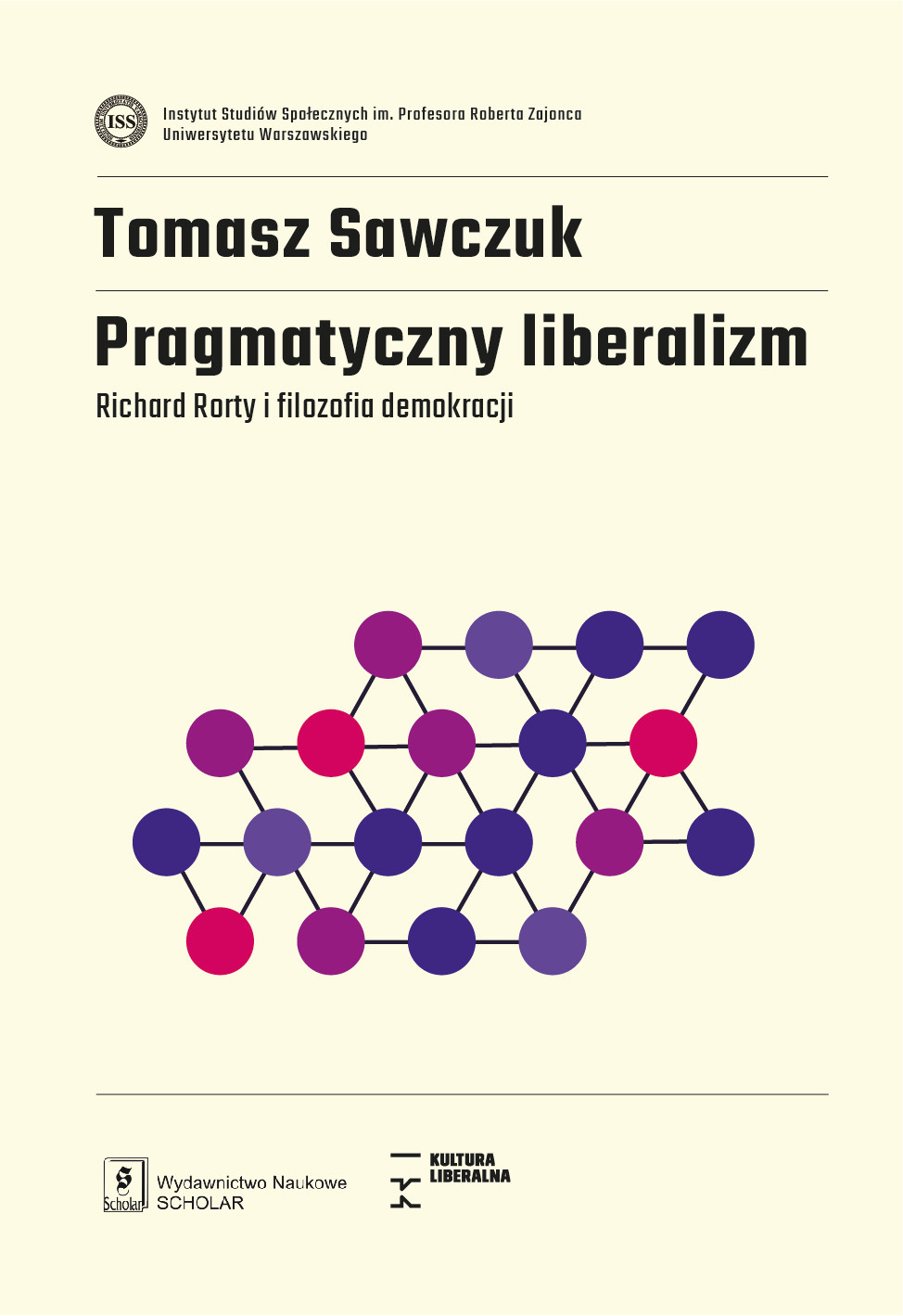
Nie ulega wątpliwości, że mamy do czynienia z pracą wybitną. Jestem pewien, że książka w istotny sposób wzbogaci rodzimy pejzaż intelektualny. Prof. Andrzej Szahaj Książka wnosi istotny wkład do rozumienia myśli Rorty'ego, ale także ważkiego nurtu w filozofii społecznej, który reprezentował – liberalizmu. Prof. Adam Chmielewski
More...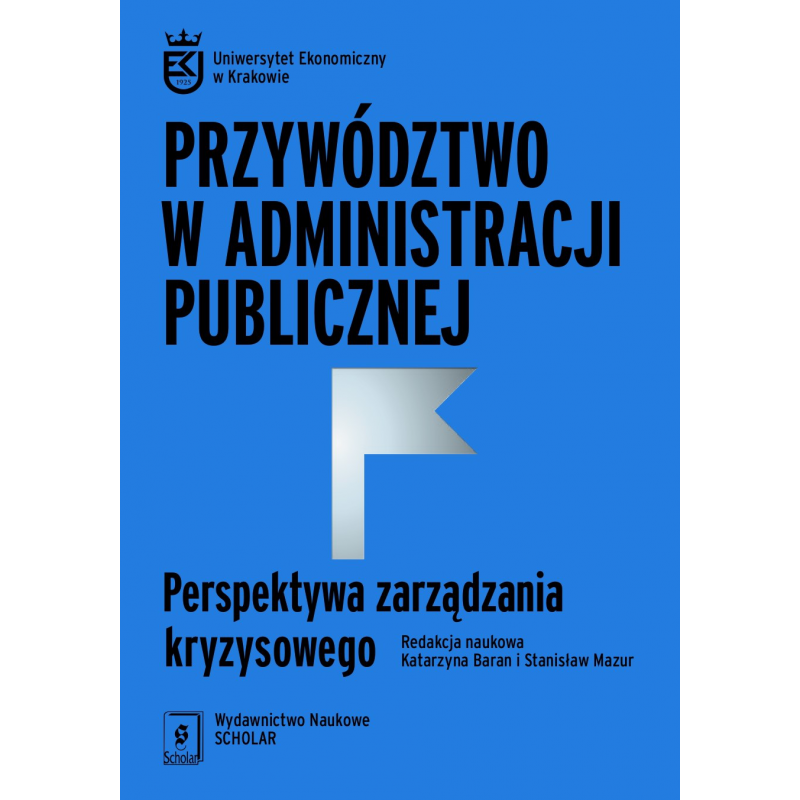
Tego typu przeglądowe i porządkujące pozycje są niezwykle ważne i potrzebne zarówno dla badaczy jak i szerszego grona czytelników. Funkcjonują one jako swoiste „drogowskazy” czy punkty orientacyjne w gąszczu szczegółowych studiów i analiz. Wyróżniającą zaletą tej konkretnej monografii jest sposób pokazania dynamiki i powiązań dwóch kluczowych kategorii, czyli przywództwa i zarządzania w kontekście kryzysu, a więc stanu, który coraz częściej będzie towarzyszył naszemu życiu indywidualnemu i zbiorowemu, czy tego chcemy, czy nie. prof. UJ dr hab. Andrzej Bukowski, Uniwersytet Jagielloński Istotnym przedsięwzięciem zrealizowanym w ramach monografii jest wykorzystanie ustaleń naukowych dotyczących przywództwa, w nowej niejako odsłonie, pod którą kryją się sytuacje nadzwyczajne i momenty kryzysowe. […] Monografia stanowi bardzo cenny wkład do badań nad przywództwem w administracji publicznej, szczególnie w perspektywie zarządzania kryzysowego. dr hab. Sebastian Kozłowski, Uniwersytet Warszawski
More...
The book is an attempt to systematize the understanding of processes, which have been occurring inthe past decades in four Central European states – Czech Republic, Poland, Slovakia, and Hungary.The monograph has been divided into four chapters, encompassing selected issues related to thefunctioning of political systems of Visegrad Group states from the onset of political, economical andsocial transformations, which transpired after 1989.Chapter one examines theoretical, historical, and methodological problems related to circumstancesof transformation processes in the selected Central European states and their further evolution.It also indicates at common and distinctive characteristics of Central European states, takinginto account political-scientific and historical perspectives. The second chapter is devoted to theissue of the functioning of government entities within governmental systems of selected states. Thepolitical analysis has been divided into periods of functioning as socialist and democratic states. Thenext chapter indicates the changes that occurred on political scenes of the designated states in theperiod from before the democratic transformation until the present day. The analysis is conductedthrough the prism of maturing of political parties and their influence on public affairs. The fourthchapter analyzes the issues of foreign policy of Central European states, describing the creation ofthe Visegrad Triangle (and later – the Visegrad Group) as a forum of political and economical cooperationof three (and later – four) states in the context of integration with NATO and EuropeanCommunities (and later – European Union).This publication exhibits Central Europe in terms of political science, regime, and history. Thecomparative property of the book, resulting from such perspective, can constitute a source for ageneral European
More...